The Question Concerning Cosmology
Robert Hurley
I take it that we are here on earth not to produce but to learn.1 Learn from experience, certainly, and also learn from the brighter lights, those others who spend most of themselves thinking carefully. In my case lately, that has been Viveiros de Castro, Schürmann again, Agamben again, Yuk Hui, and to some extent Isabelle Stengers, whom I’ll start with to help me say that science’s description of reality is quite limited to verifiable facts that are relatable to previously established physical laws. This a position that has developed historically in a struggle over truth in the West, involving religions and philosophies and poesies and other contenders that defend various senses of truth. Stengers adds something to this by saying that most of her scientific colleagues are visceral in their conviction that since scientific description is the primary gain made in modernity as far as human progress goes, “No regress is to be allowed.” That is, no symbology, no mythology, and actually no values beyond the scientists’ inherited humanism.2 Now, what I want to address here is the question concerning cosmology — in a time when the sensibilities of us modern earth-dwellers are longing, are beginning to search, for figures that are truly grounded in the planet we inhabit.
As you know, the James Webb infrared telescope has been launched. If successful, it will peer into far regions of the universe at celestial events occurring just two million years after the Big Bang. What could be more interesting? I’ll admit it’s right up there — behind, say, the fifth set of an Australian Open tennis final, Nadal versus Medvedev. My light sarcasm translates a certain melancholy connected with the projects of astrophysics, which don’t nourish our subjective or collective cosmologies as they perhaps ought to. There is a definite loss involved, though we still have an intimacy with our local star, whose rays feed us and which we also experience as sunshine, heavenly sunshine. The others still twinkle twinkle but do we still wonder what they are? Now, consider this sentence: “She sat staring deep into the void, reminding herself of her place in the cosmos.” One can make sense of the sentence, but only as a confusion (which void? what place?) — unless “she” is a pre-industrial Chinese. Because we know from Yuk Hui3, in particular, that for the Chinese the cosmic order was fully expressed in the Dao, the Way, and that it was extended into practical and ethical human life by Qi (Q plus i not the New Age Chi (C h i)), the appropriate way of doing the appropriate things at the appropriate time — that is, a technics. Further, the Dao came out of the void, and in a sense is still accompanied by it. The Dao/Qi duplex was a cosmo-technics that had everything to do with earthly well-being. The Qi, the technical, was subordinate to the Dao in a relationship analogous to figure and ground. For us moderns, that relationship is reversed: technology rules, and the ground, if it exists, is an ambiguous or ambivalent figure. The cosmos as constructed by science, mathematically or geo-metrically, is sublime, as Kant might say, inspiring awe and often dread, but is of little use as a ground for our embodied terrestrial souls.
Excuse me, but I’ve just pointed to two huge and hugely familiar problems that trouble our existence: technological domination and metaphysical groundlessness. Obviously, there are causal chains that connect the two. The first of these problems is rather familiar, I think, and can itself be divided into three applications of power: psycho-power and bio-power, but also the technological destruction and prejudicial alteration of life worlds, the land, and water. On the side of psycho-power, the digital media and the social networks cheapen and foreshorten our experience of one another. They deprive us of each other’s animal presence. They change our everyday habits by addicting us to an ersatz sociality which partakes of its own technicity: what I’ve done or haven’t done or want to do, what has entertained me or happened to me, etc. They propagandize for this or that set of opinions about the horrors the great economic machine has caused. They dull our empathy for widespread suffering. They prepare our minds for a substitute reality. And they advertise a million products — I could go on, you could go on… Such is psycho-power. But there is still the matter of biopower, technologically administered. The surveillance state, the controlling state, of course, but also warfare visited on foreign human bodies, and occasionally domestic ones, uncomfortably close to our own. And there is the constant ravaging of terrains and territories, technologically accomplished by amazingly capable machines, such that one can easily notice the reduction of bio-reality in one’s own lifetime.
The history of metaphysical breakdowns was explored by Reiner Schürmann in Broken Hegemonies.4 For Schürmann, in each historical epoch, there is a cohesive power that binds human subjects at once to the cosmos and to concrete social and political forms. This power to bind phenomena together, giving action a foundation in thoughts that legitimated it, rested upon principles that became the nomos, ultimate norms that had the effect of laws for thought. In the West, there have been three principal epochs of this sort: the Greek world, whose founding principle related to oneness, the Roman world whose principle related to nature as lawgiver, and the modern world, which related (and still relates) the coherence of the world to the activity of self-consciousness. Schürmann also calls these principles “hegemonic phantasms” to signal their inherent fragility, given that they were (and are) all contested by competing claims to truth and by nascent antithetical norms. In fact, they have all been largely destituted. And a parenthesis, I have to say what you, too, may be thinking: this history was not just a perpetual discussion; there was all the bloodshed one could possibly imagine...
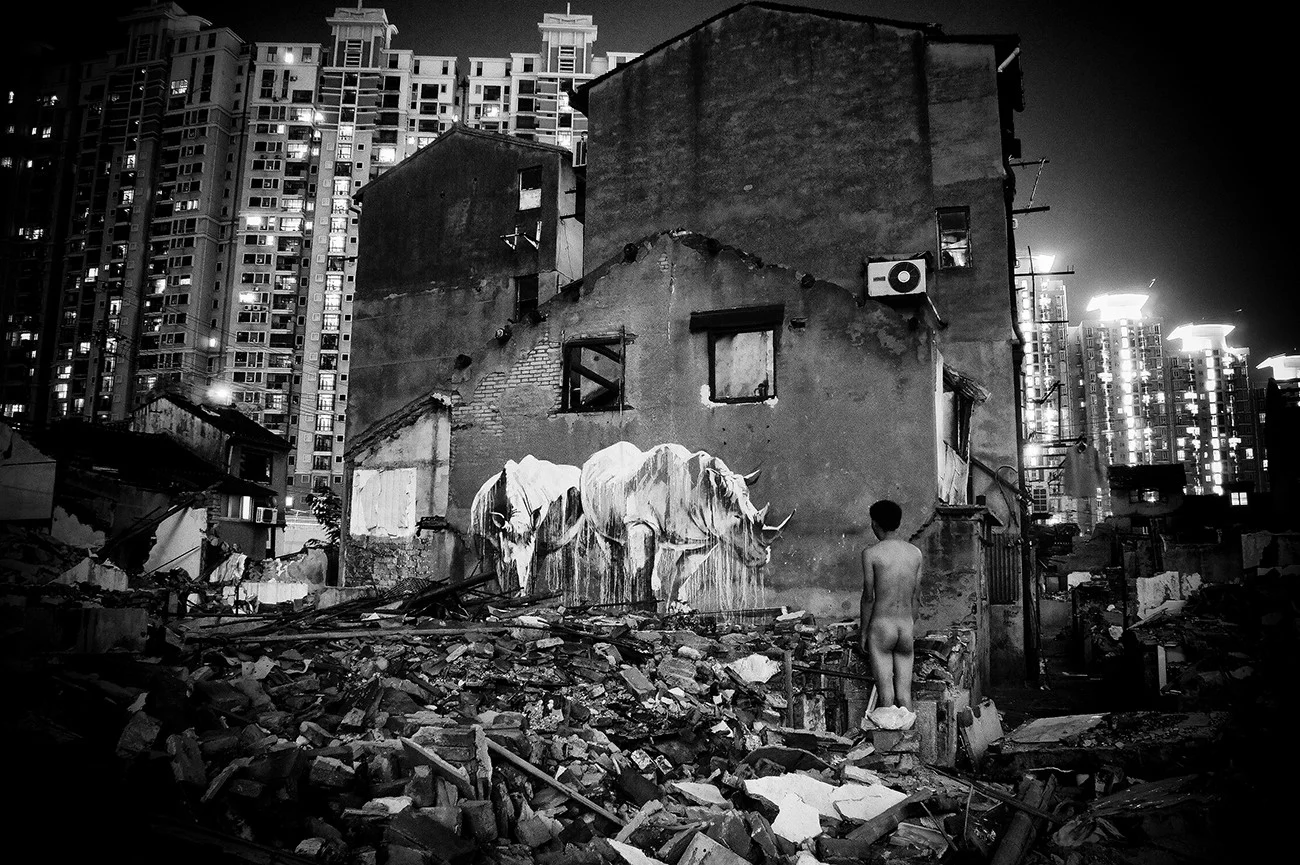
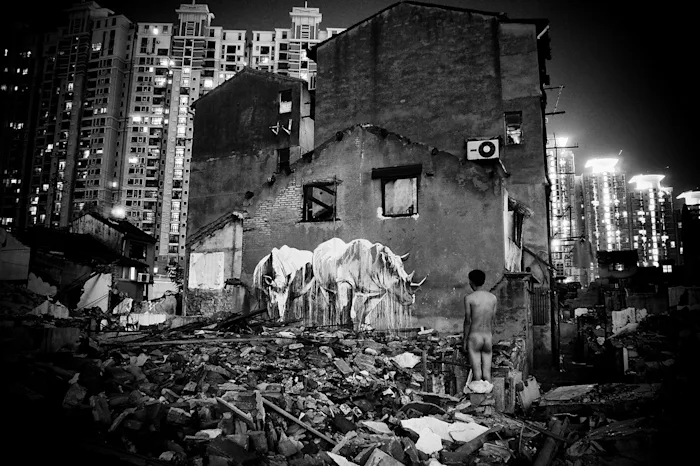
What is it that withers and breaks down reigning principles? By what was the coherence of the West destituted? By the desertion of singularities, which negate the hegemonic system and affirm their singular dissidence. Now, the two sources of my conception of this term ‘singularity’ are Schürmann and Agamben. Although their treatments of the matter are broadly congruent, there is nevertheless a significant difference between them. For Schürmann, what creates the singularity is the pressure exerted on human beings by mortality, a pull that is experienced or felt singularly by each human, and can only be resisted positively by a (mortal) vitality. There is an avowedly tragic cast to this destituent dynamic in Schürmann, one that is perhaps redeemed by his recognition of the urgency of rebellion against the systems that try to eliminate such a drama, such a vitality. As we know, systems are (real) abstractions that operate on the bloodless pretense of timelessness, immortality, or even eternity.
In contrast, there is the Dionysian singularity of Agamben, as described in The Coming Community.5 Schürmann cites from this work, but subsumes it into his argument for a general loss of grounding or foundation for modern subjectivity, and for the structures of Western society more broadly. This is what he quotes from Agamben: “Quodlibet ens [whatever being] is not exactly ‘being, little matter which,’ but ‘being, which matters in every way’; in other words, it already presumes a reference to the will (libet): indefinite being maintains an original relation with desire.”6 Agamben seeks to expand the scope of this libet. He gives the example of lovers who love one another exactly as they are, as whatever beings, as one wants them. Yet he implies more than he says here: his aim is to add another page to the long saga of Occidental ontology, with its imbrication in the political. What we call the world is most often a sea of contingencies, but Agamben’s lovers reach the shore when contingency becomes necessity. The operator of this shift, so to speak, is irrational — that is, it is sensible rather than cognitive. Moreover, one seems to be justified in thinking that the essence of such an event can be projected to the largest scale by positing a kind of sensibility that gives form to contingent or emergent phenomena. Well, I’m not sure if it gives form, or merely senses a potential or emergent form. And I can’t say for sure who senses. Don’t we assume that when we sense something, our precious others sense it too, in their singular ways? In any case, wherever contingencies become necessities, this shift redistributes the social field, splitting the world in two: our team and theirs, Team Eros versus Team Thanatos (I used to be a Marcusian). The hope is that this line of thought, as naïve as it is, will have some bearing on our radical prise de conscience (coming to consciousness)and our maintenance of such a consciousness, but I serve it up like the beans-and-rice that comes with the enchiladas.
I want to say more about our cosmological problem, which Yuk Hui ascribes to a wrong “cosmotechnics.” At the core of it, lies a modern misunderstanding: the cosmos in question has little to do with the universe of the astrophysicists. Something, but little. Consider, if you’re willing, Heidegger’s diagram of what he calls the “Fourfold”7:
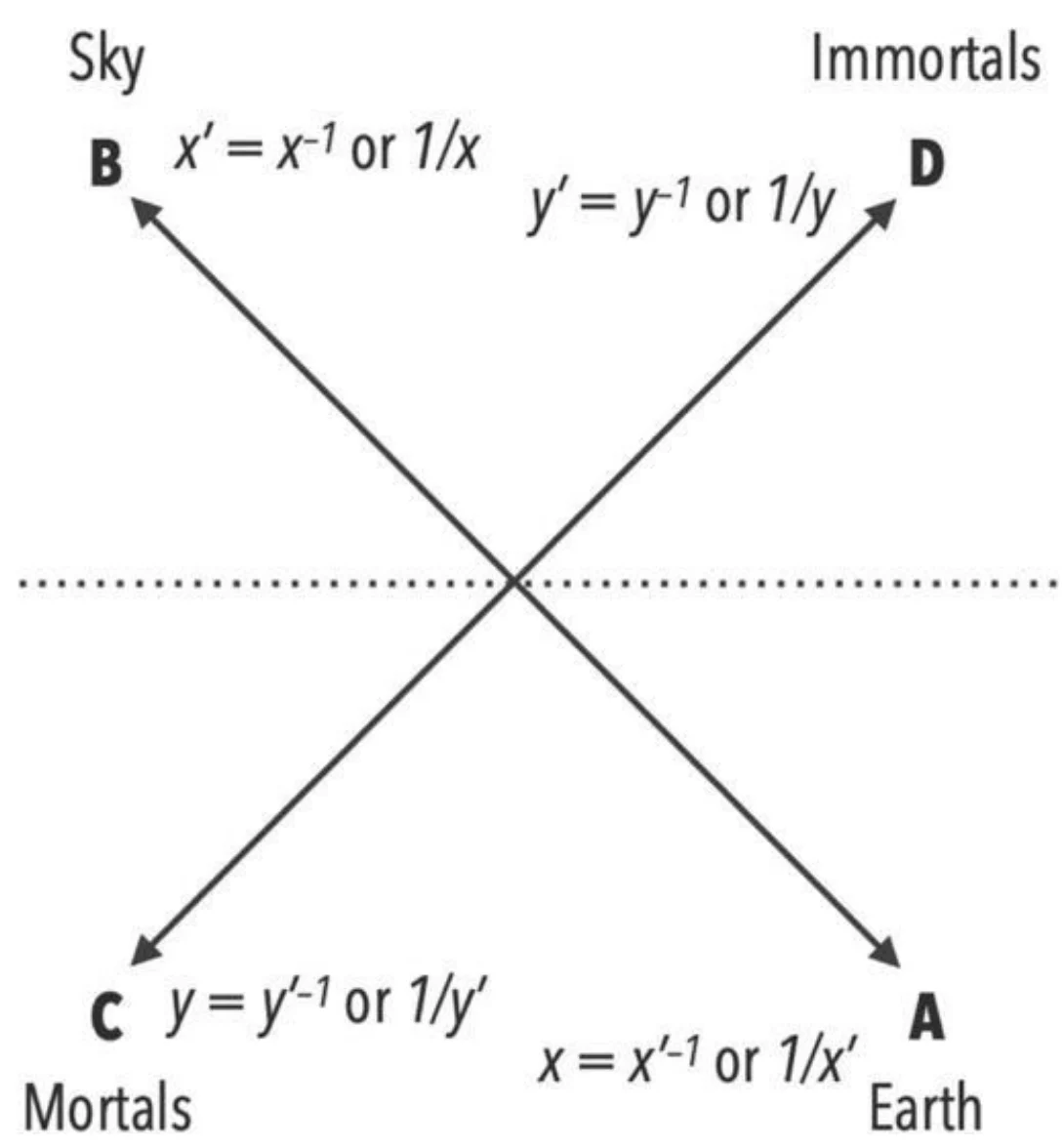
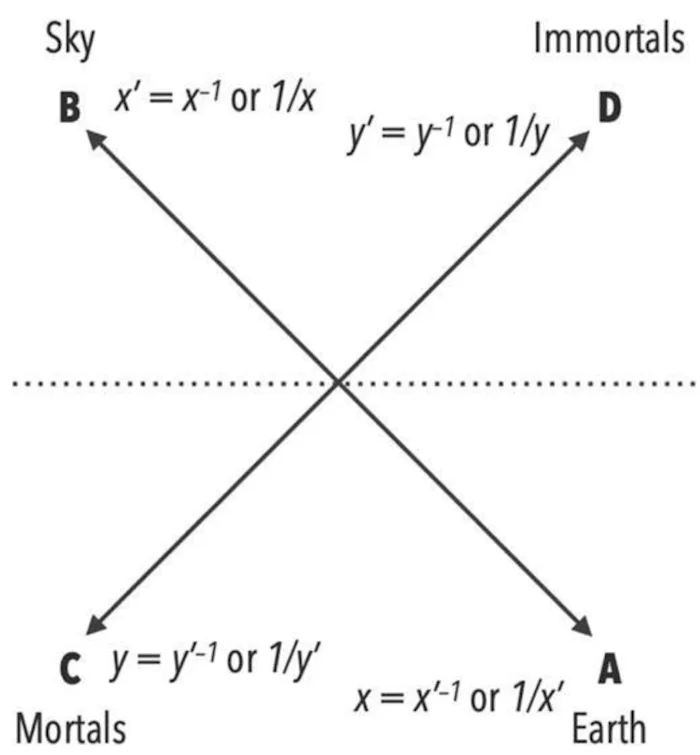
Ignore the equations, as I do. I believe they are meant to depict relationships between the four elements of the figure, beyond the limits of the A-B, and C-D pairs. Whatever. The first thing to note is the absence of any Universe, and yet this is a representation of the human cosmos, the proper idea of the order of things. I know, that word “human” has started to stick in our throats. More about that in a moment. So, Earth and Sky, Mortals and Immortals. But no Universe.
What about those Immortals? Perhaps we can approach them anecdotally.
We escape the city with friends, as we must, and drive to one of the nearby mountain ranges, the Sky Islands, as they are known around here. Arriving at the base of our mountain, we step out of the vehicles and look, and look some more. The face and its cliffs, the oak woods and savanna below. We need to exclaim, so there are sincere “Wow’s,” “Awesome’s,” and, “Isn’t this something?” After a while, the walks and climbs begin. Later the campfire and the talk, about “everything under the sun.” It’s lovely. At the same time, there seems to be a kind of disappointed potential. Would there not be a way to gesture toward the presences, those oak trees and their roots, mutualized by mycorrhizae, those cliff surfaces and their history, those creatures that may well be watching us, and our very beings which they watch? As a response, I think I can venture, without embarrassing myself, that these presences, these singularities, plus these singular existents in their proper places, are the Immortals, and someday a revolution might allow us to name them again, our divinities, for the first time. There are two difficulties with that. The first is that, for us, the divinities are modes of being, as much as they are beings. The second is that, as singularities, they don’t generally love us back, or hate us for what we’ve done to them, thank goodness. Well, loving us back is debatable: what if we think of love the way Walter Benjamin thought of justice, as a certain state of the world, when our team stops losing? To return to the diagram, what we find here is an attempt to lay out the elements of a world. But, you are right, the world without its technics and its technology, the thing we are trying to escape from. For as Heidegger (curse his Nazi heart) observed in The Question Concerning Technology, capitalist technology is bent on extracting everything it possibly can, turning nature into a “standing reserve.”
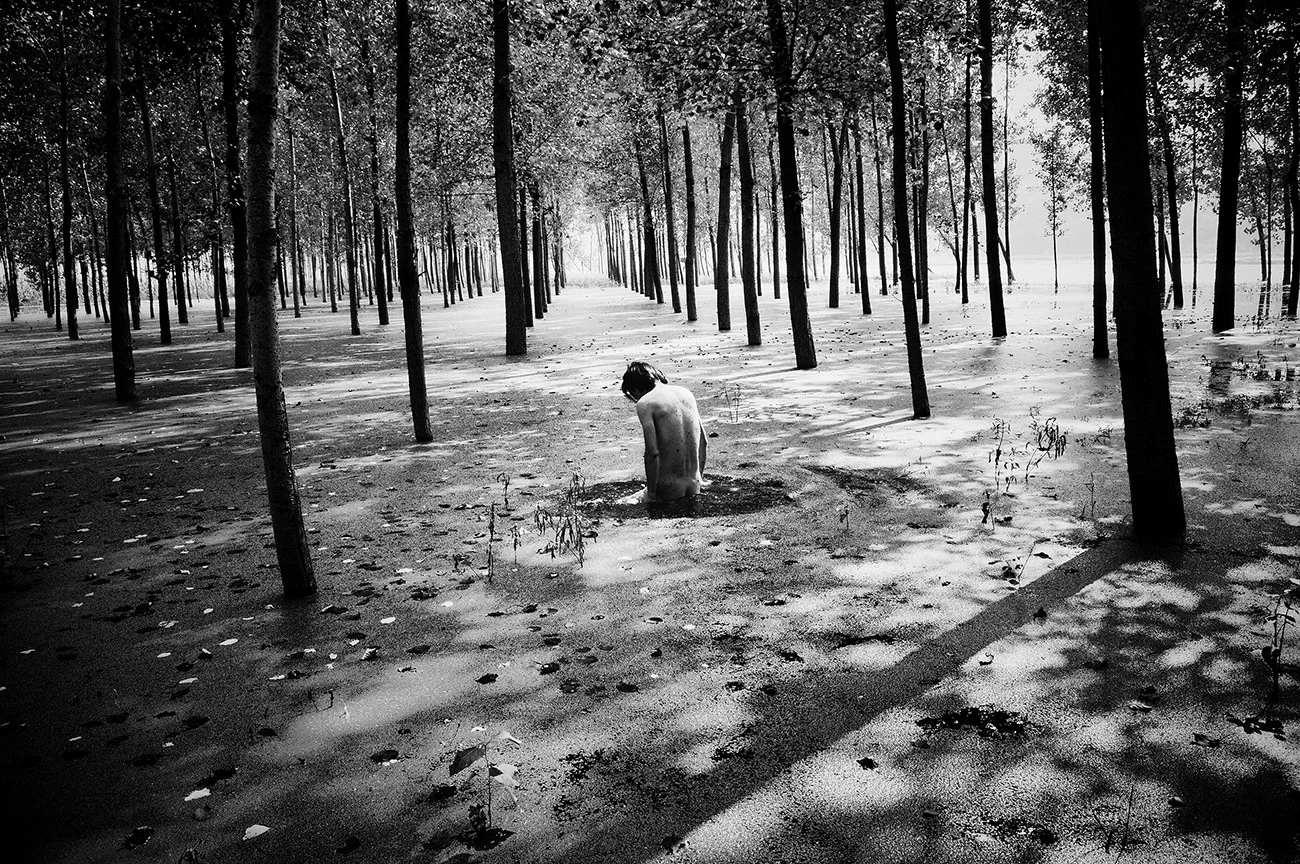
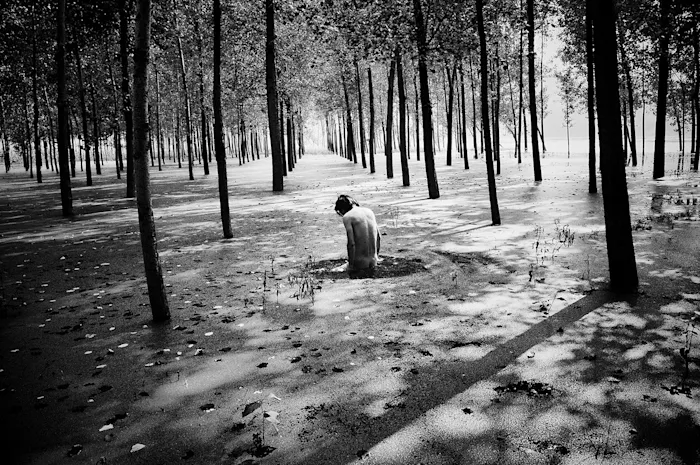
We are terrestrials, or as Viveiros de Castro says, terrans.8 Why he labels us in this way is of interest to us. Viveiros calls us terrans to distinguish us from humans, those who buy into the sordid history of humanity. I do mean history, Western history, as opposed to the long prehistory of the species. In this way, he marks out a position within that largest of conflicts: the civil war between, on the one hand, all those who have distinguished themselves by their arrogance and cruelty towards the others — in Agamben’s terms, by excluding them and then re-including them as lesser beings, sometimes as slaves, sometimes as servants or servers, a sovereign act repeated across “human” time that serves as the unacknowledged foundation of their socio-political system — and those others who recognize that they are not excluded by the earth that grounds them. In this light, we terrans, who are legion, may actually have no need of any other “metaphysical foundation” than our beloved substrate. “Humans” have long dreamed of leaving this earth, of becoming extraterrestrial; no doubt we terrestrials, or terrans, might happily wave them good-bye. Christians and other such theists are a case apart. They have a separate itinerary, by which they hang out “here below” because they have to, and look forward to the Great Crossing. When our flawed champion, Edward Abbey, died, there was a memorial event near Arches, where he had written Desert Solitaire. I remember how, after the speeches, two or three musicians sang a rendition of the Christian classic, “Will the circle be unbroken? (bye and bye).” The song totally wrecked the vibe. But then, off to the side, under a pinyon tree, a solitary drummer started in and filled the air with a deep, insistent, pagan beat. By magic, things became right again.
As Viveiros usefully observes, there are roughly 370 million indigenous alive on the planet, more than the combined populations of the United States and Canada. As he says, “that should count for something.” It does, but as Viveiros is well aware, it’s a false total, a universal not unlike our inherited concept of nature. This latter hangup, the problem with our concept of nature, is brought home by the fact that, for the least colonized of these indigenous, nature is not totalized, it is precisely what they are in the middle of, it is their milieu. In this way, it is personal, peopled by other beings like them, but with different bodies. So this means there is a difference of ontologies, and an untranslatability between them. The already-problematic Western ontology is thereby demoted, destituted of its claim to universality.
Even in its partially destituted state, this claim to universality remains — albeit as an aporia. We Occidentals try to straddle the bifurcation that sent some ancestors on a symbological path of art, poetry, philosophy, and spirituality, often organized into cults, while others found their purpose through physis, in science and technics. The aporia concerns the divergence of the paths, one excluding the other. That is, until modern humanity, when one of the paths, technics, becomes a kind of uroboros and devours its own genesis, like a figure absorbing the ground.
Humans have their story about this. For the most part, it has been one of “human evolution,” the master theme being that of a species externalizing its capacities, from tools to machines to memory machines, and then (or is it concomitantly, as Mumford argues?) to humans as machines. In his long but fascinating excursus, Recursivity and Contingency, Yuk Huitraces the philosophical engagement with the problem all the way through second-order cybernetics, now known as systems theory. In simple terms, it boils down to a conflict between mechanism and vitalism. Yet there is a definite ethical dimension to Yuk’s exposition, and what bothers us to no end also bothers him: capitalism, which he also sees as anti-life. Yuk hopes to “put mechanism back into its place within life,” yet he rejects vitalism, at least as it was defended by Bergson. What on earth might Bergson’s élan vital correspond to? “The force that through the green fuse drives the flower drives my green soul” (Dylan Thomas). Is not this life force or impetus just a metaphor for life itself?
Instead, Yuk Hui gently proposes what he calls a new “organology,” one capable of accounting for the commonalities between organic beings and digital machinic beings that have achieved their own individuation, and thus deserve to have their existence respected, perhaps in the sense that one can respect one’s truck. They remain prosthetic, existing apart from the bodies they serve. (That is, unless one of the technocrats, Larry Page, gets his wish: computer chips routinely implanted in every human brain.) What such machines share with living beings is recursivity: they take in contingent information and incorporate it, make it necessary to their own operation and telos. “Life also exhibits such complexity, since it expects the unexpected, and in every encounter it attempts to turn the unexpected into an event that can contribute to its singularity. Failures come when the recursive form cannot generate its consistency.”9 This is quite cool and Yuk is clearly a friend, a techie friend who is not deaf to the pagan drumbeat. The only quarrel I have is that he seems to remain within the evolutionary humanist story: cybernetic technics represents a gain for “humanity”; technics has lost its bearings, but can itself be “steered” onto the correct course.
I’ll conclude with a brief quote from Gregory Bateson, and a comment about it. In his overblown talk about Alcoholics Anonymous, he says this: “The beauty of the woods through which I walk is my recognition both of the individual trees and of the total ecology of the woods as systems.” No, this is not cool. Life has been notoriously hard to define, but it takes a cybernetic ecologist to think of it as interlocking systems. Yuk’s phrase above does resonate: “turn the unexpected into an event that can contribute to its singularity.” We know now, it’s a scientific fact, that forests are singularities composed of other mutual singularities, mutualized by their underground webs of mycorrhizae. In other words, trees are communist. And who am I, but isn’t life like that? And doesn’t our sensibility intimate — doesn’t our intuition inform us — that life is scaled into what Spinoza called modes? Quodlibet: to seek to persevere just so, in a certain place at a certain scale, with a certain dynamic and self-generative consistency. One of the things life generates is love. Of course, Spinoza was not only the best of the rationalists, but also the great philosopher of affects, and where, at the end of his Ethics, he refers to the “intellectual love of God” (“or Nature”), I’m almost sure he wouldn’t mind if we made some adjustments and understood this as affective reason, which is always fueled by intuition.
Images: Liu Tao
Notes
1. First delivered as a talk to the Albuquerque Kerasu Society on April 23, 2022.↰
2. Isabelle Stengers. “The Challenge of Ontological Politics,” in A World of Many Worlds, Duke University Press, Durham, N.C. and London, 2018.↰
3. Yuk Hui, The Question Concerning Technology in China, Urbanomic, 2016; Recursivity and Contingency, Rowan and Littlefield, 2019.↰
4. Reiner Schürmann, Broken Hegemonies, trans. Reginald Lilly, Indiana University Press, 2003.↰
5. Giorgio Agamben, The Coming Community, trans. Michael Hardt, University of Minnesota Press, 1993.↰
6. Agamben, The Coming Community, 1.↰
7. Diagram borrowed from Sofya Gevorkyan and Carlos Segovia, “Earth and World(s): From Heidegger’s Fourfold to Contemporary Anthropology,” in Open Philosophy, 4, 2021.↰
8. Eduardo Viveiros de Castro and Déborah Danowski, “Humans and Terrans in the Gaia War,” in A World of Many Worlds, edited by Marisol de la Cadena and Mario Blaser, Duke University Press, 2018; Eduardo Viveiros de Castro, Cannibal Metaphysics, Univocal, 2014.↰
9. Recursivity and Contingency, 9.↰